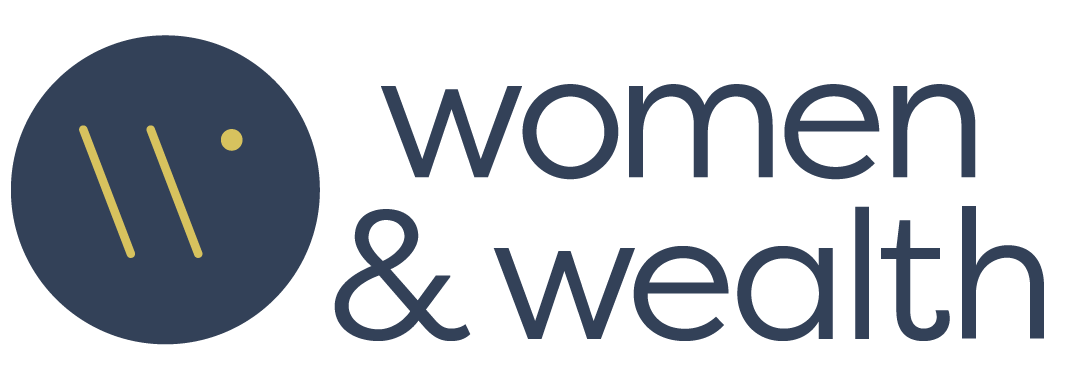Big news for Reset Your Nest!
We are joining the Burnes Center accelerator program: Solving Social Problems.
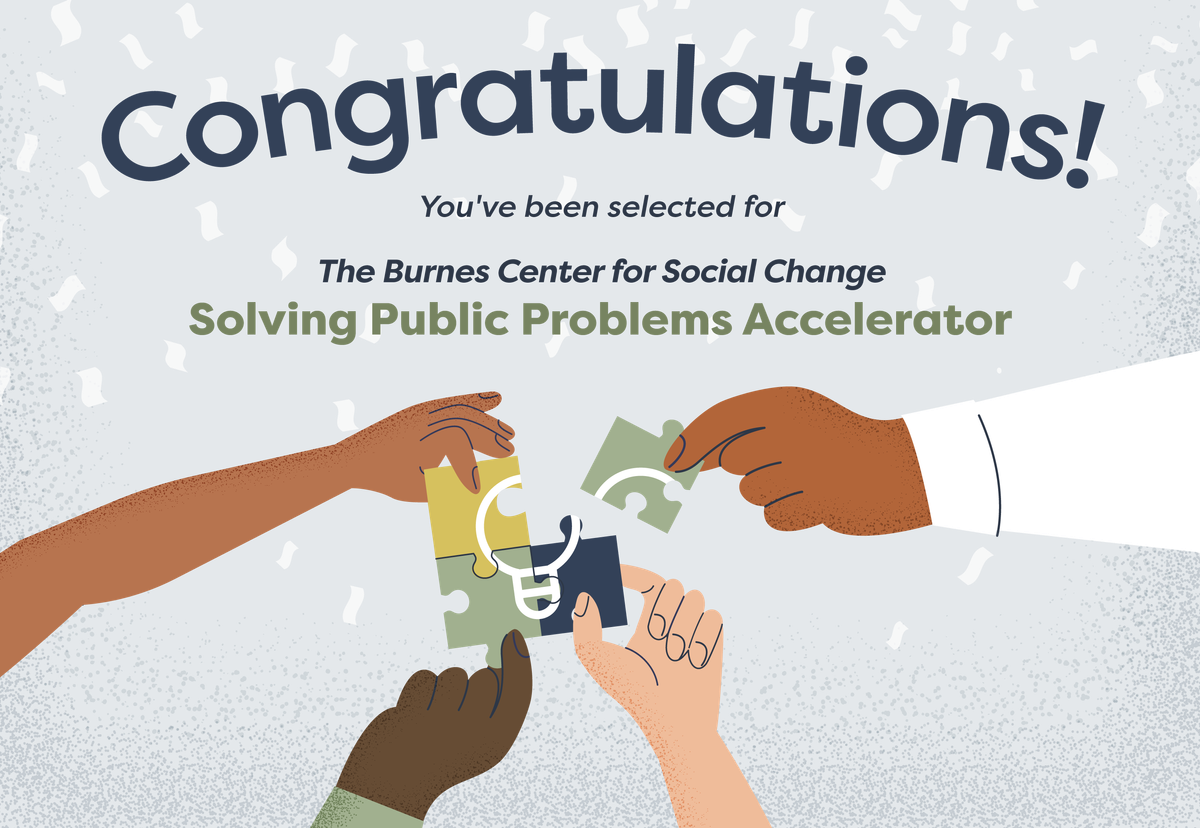
Reset Your Nest has been accepted to Solving Public Problems, an accelerator program developed by Beth Simone Noveck.
We are thrilled to join 20 international teams over the next several months to work on various social problems. Beth founded the GovLab, an action research center that supports and launches high-impact, multi-disciplinary projects focused on public good issues. I have been in awe since I met her when she led the final State of Play Conference at NYU in June 2009. Beth recently moved to Northeastern University to lead the Burnes Center for Social Change and Innovation. Through her experiences as a change maker, Beth has identified seven important skills to change the world. We’ll be diving deep into these skills throughout the accelerator program—and you can learn more about them in this TED talk.
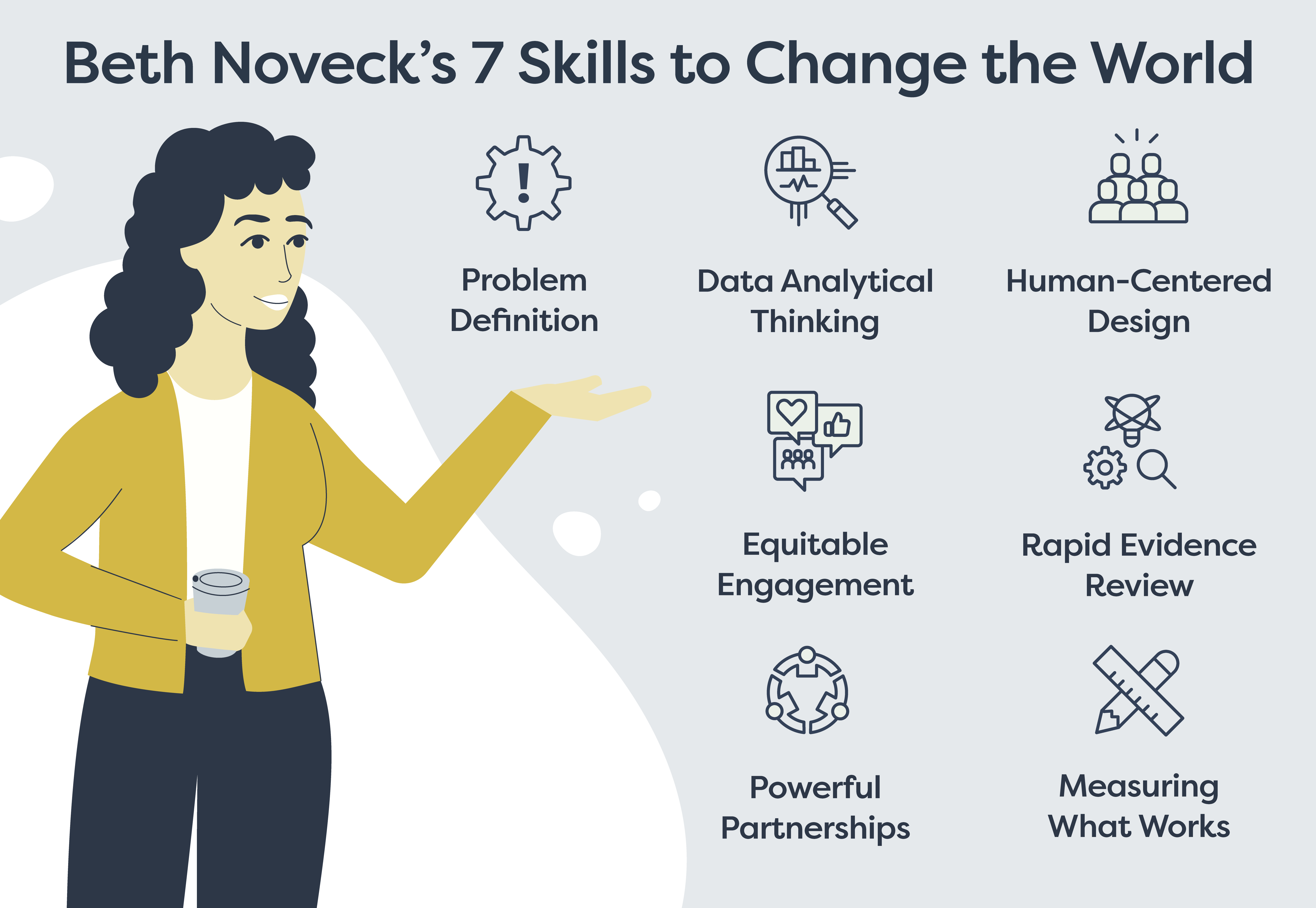
The pool of change agents selected for this program comprises a collection of individuals working to improve education, advance social innovation, make access to mental and physical health more available, and improve access to decent work. Decent work is where we come in with our mission to raise wages and revalue domestic labor in the United States.
As an early-stage startup team with a social mission to empower women and support families, Reset Your Nest hopes this program will help us identify and make actionable and supported progress against some of our most audacious goals. We know we’ll benefit from greater access to knowledge experts and a cohort of participants who are also working hard to meet their audacious goals—and from developing and implementing our Accelerator Project with the support of Solving Public Problems.
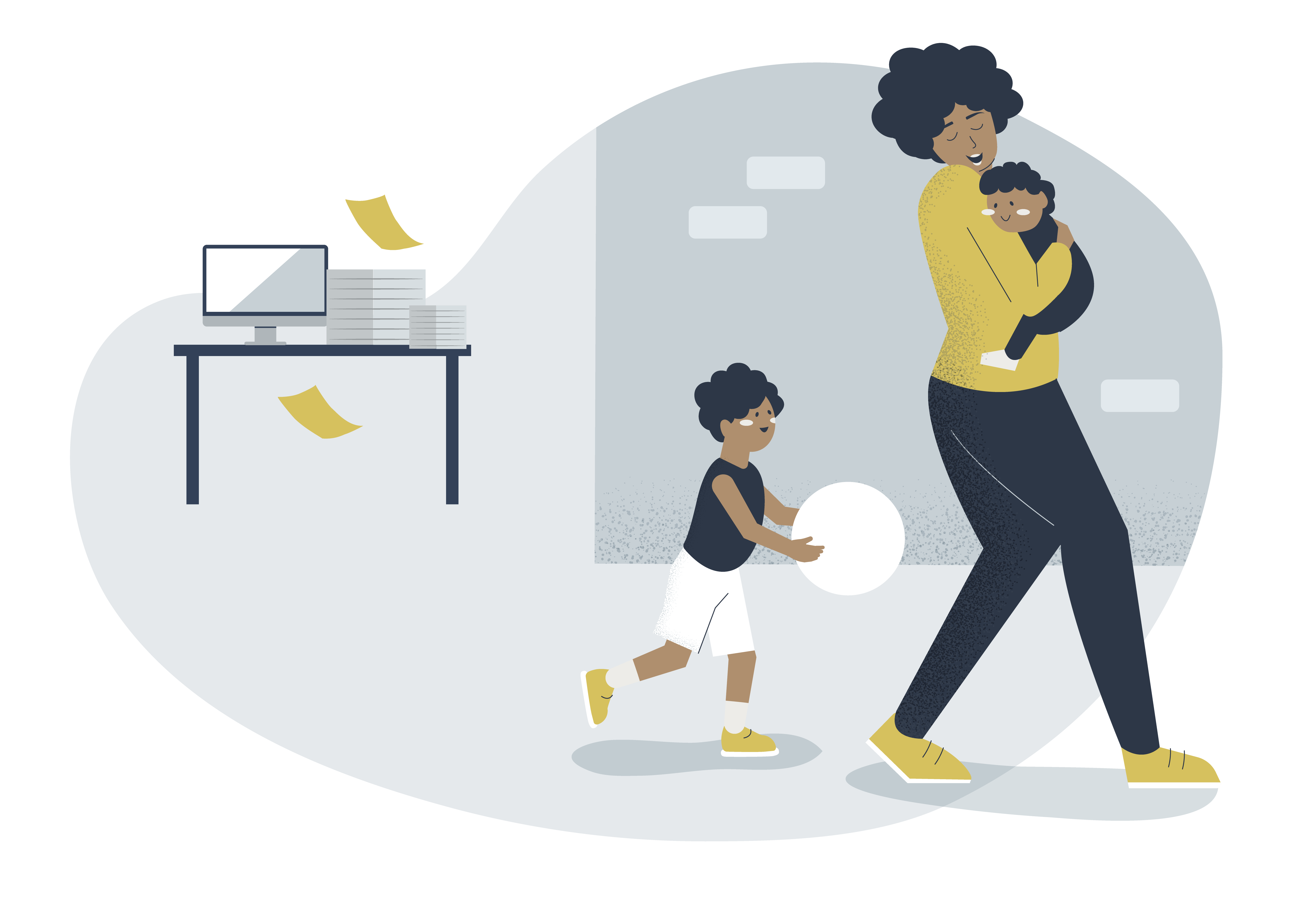
Reset Your Nest is working to address how women are disproportionately undervalued and overworked across socio-economic demographics in the United States.
At large, women’s wages are not equal to their male counterparts, they have less wealth, and they are more likely to work double-shifts as employees and then at home as caretakers. Compounding this dichotomy, sexist and racist policies have structurally undervalued caretaking in ways that have been particularly damaging to women of color, especially those whose primary options for employment have been in the care economy. In reality, care is a critical act of labor within a healthy society. It is common to talk about the need to upskill workers; however, there are a host of basic activities in the care economy that are essential.
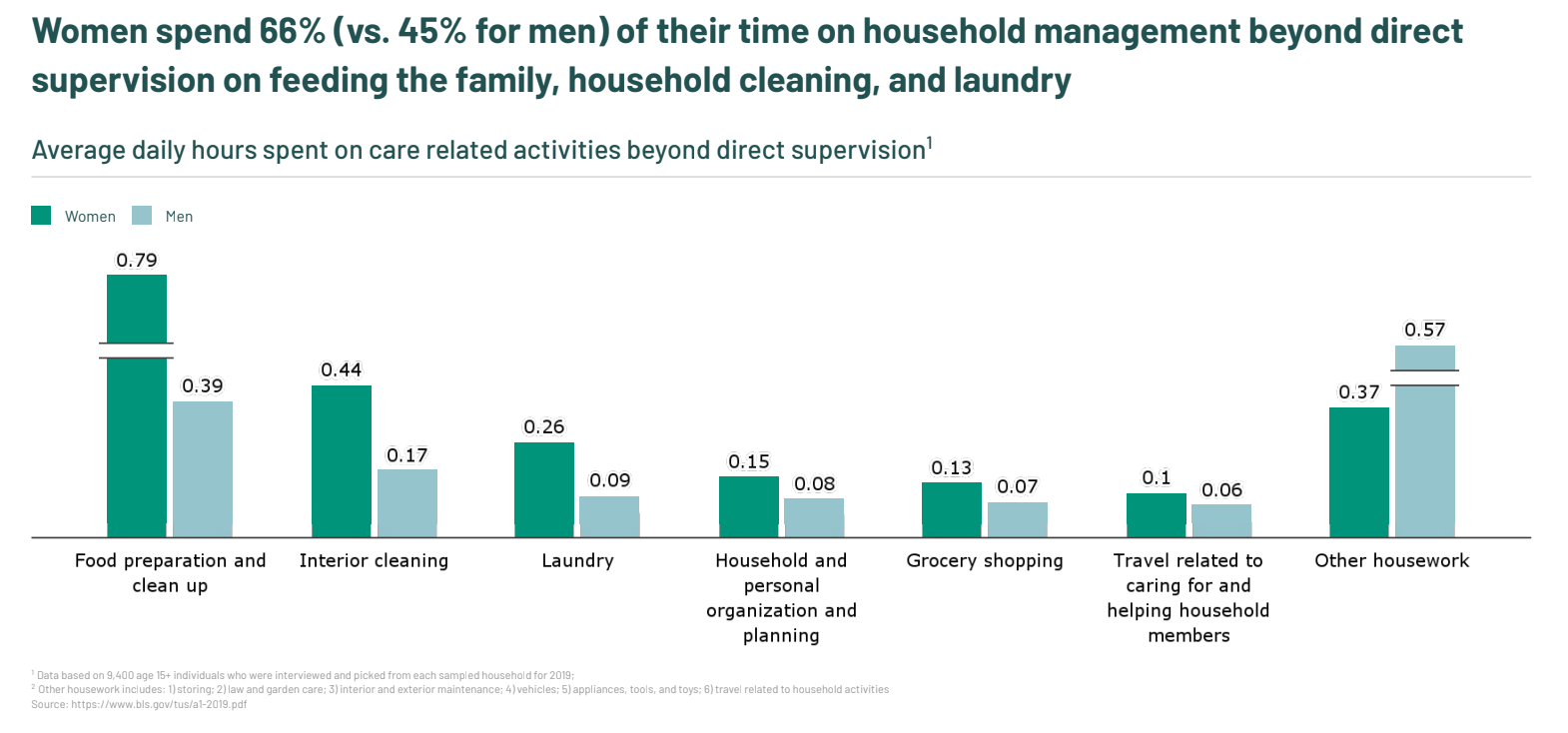
Reset Your Nest is a social mission corporation designed to provide higher wages and retirement accounts for women in the caretaking economic sector while easing the burden of household management for our clients. Our social mission outcomes map to the United Nations Sustainable Development Goals 5 (Gender Equality), 8 (Decent Work), and 10 (Reduce Inequality).
Our business model became profitable on a small scale within two years, demonstrating a premium market opportunity for professional home organizing services. In 2023, we will scale this model to other locations and states. Our longer-term plans include additional opportunities to reduce the cognitive load of household tasks such as house management, meal preparation, laundry, housekeeping, and yard maintenance.
We are counting on women, families, communities, and large corporations banding together to affirm that our society needs collective capitalism that revalues and compensates care activities for the mental health of overworked executives and the financial health of underpaid caretakers.
Here’s what we know as we build our evidence-based approach:
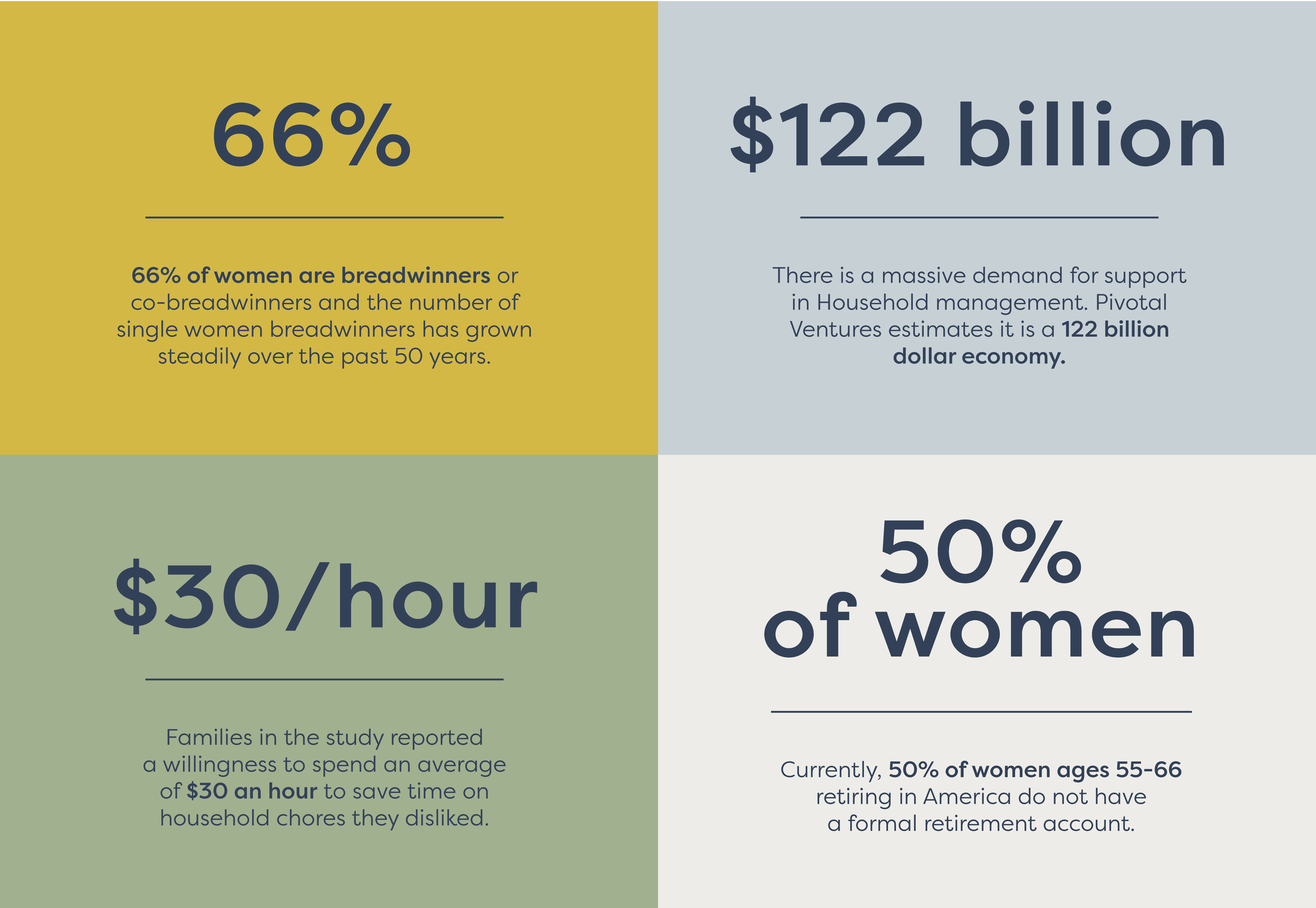
- 66% of women are breadwinners or co-breadwinners, and the number of single women breadwinners has grown steadily over the past 50 years.
- There is a massive demand for support in household management. Pivotal Ventures estimates it is a 122 billion dollar economy. Families in the study reported a willingness to spend an average of $30 an hour to save time on household chores they disliked.
- Currently, 50% of women aged 55–66 retiring in America do not have a formal retirement account.
We believe everyone in the care economy deserves an investment in their financial health, and long-term wealth.
Access to retirement savings beyond social security funding should be available to anyone in America—because in a nation of wealth, it is our humanity that unites us to care for our caretakers.
At the core of the Solving Public Problems accelerator program we will be working through the seven skills and applying these competencies to our individual social good projects. In the first week, we considered our problem definition and how we might best partner with program leaders. The program encouraged us to define the root causes and main challenges that keep wages for domestic work low.
Our identified root cause is:
In the United States, we have a cultural expectation that women will manage homes and childcare for low or no cost.
This is exacerbated by additional (main) causes, including:
- Historical precedent: Starting in the Industrial Revolution men went to work while white women with privilege engaged in “homemaking” activities.
- Undervalued: Domestic work is often performed by “unskilled labor” or by marginalized workers and has been undervalued.
- Stigma: “Good women” are supposed to be able to do the work themselves.
- Perception: Home Organizing is frivolous, unnecessary, or even worse…fun.
- Awareness: People are not always aware of specialized services when trying to reduce labor within their home.
Next will look to finalize our own Accelerator Project. Based on the research above, we’ve narrowed our options to two projects. We’ll be developing our Accelerator Project with the support of Solving Public Problems and capitalizing on the network access we have during this time—and that’s where you come in!
Which of these projects sounds most valuable to you, and why?
- Utilize neighborhood data to determine our top list of cities to launch in 2023 and work with the GovLab to identify what rates we should charge for organizing services—and in turn, our rates for home organizers.
- Ask the GovLab and Northeastern University to support a blended impact investment strategy to help us raise investment for our expansion plans through public, private, and grant investments for social impact.
If any of our friends and readers have ideas to advance either of these projects or to offer introductions to others that may be interested, we welcome your support. Please share your thoughts in the comment section below or DM me on LinkedIn.
If this topic sparks your interest…
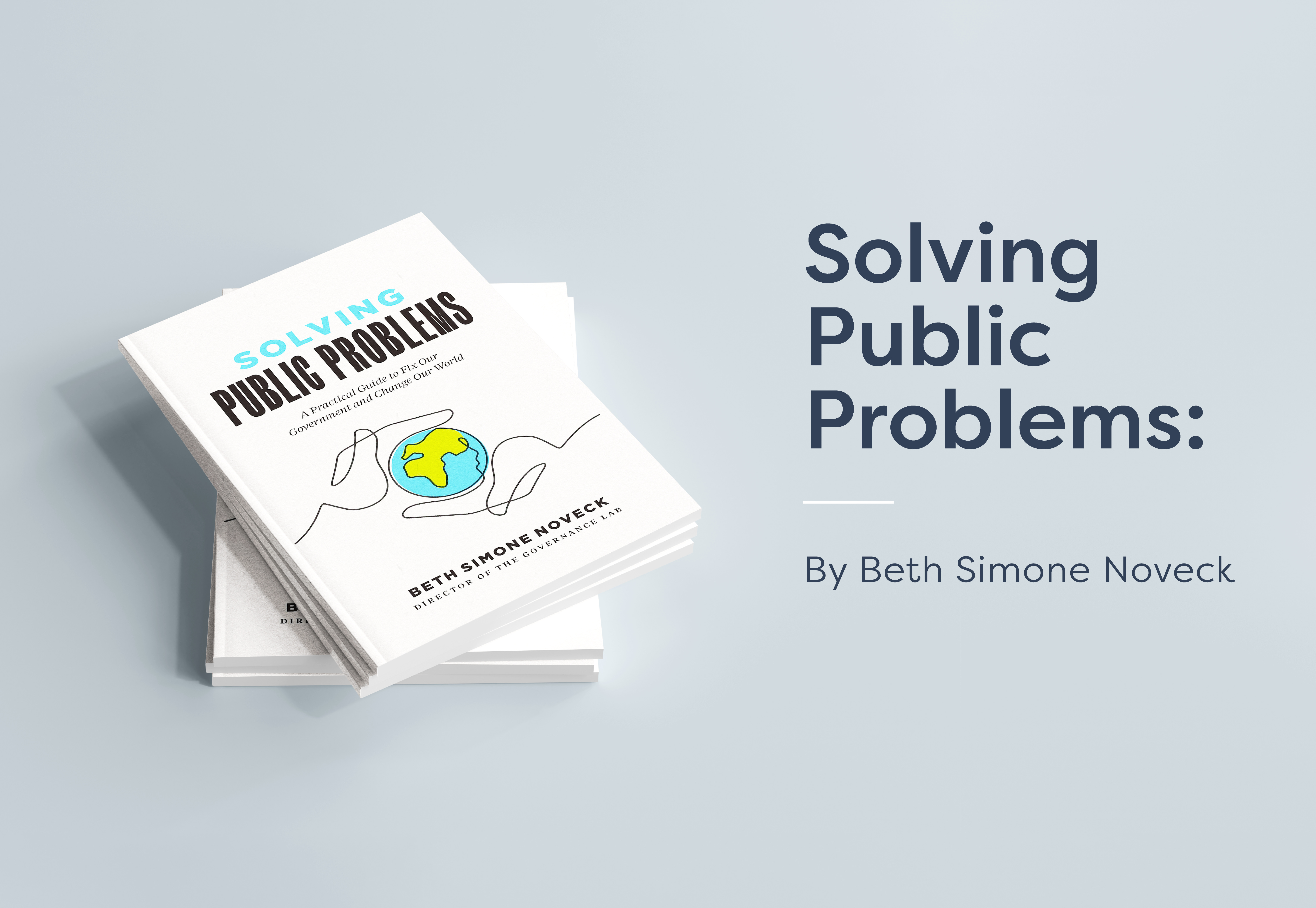
Beth Simone Noveck published Solving Public Problems in June 2021. I read the book and highly recommend it to anyone who wants to solve community issues of big and small sizes with data and empathy.
She has also launched a free, online course available over 12 sessions with excellent, short explainer videos and templates for individual use. The course covers a framework for thinking about public problems and multiple sessions on how to define a public problem through data and human-centered design approaches before turning to identifying solutions and experimenting with those ideas. The ideas in this course are evidence-based and applicable across fields and industries. I love the framework she presents as an invitation to explore problem-solving through any topical lens.
